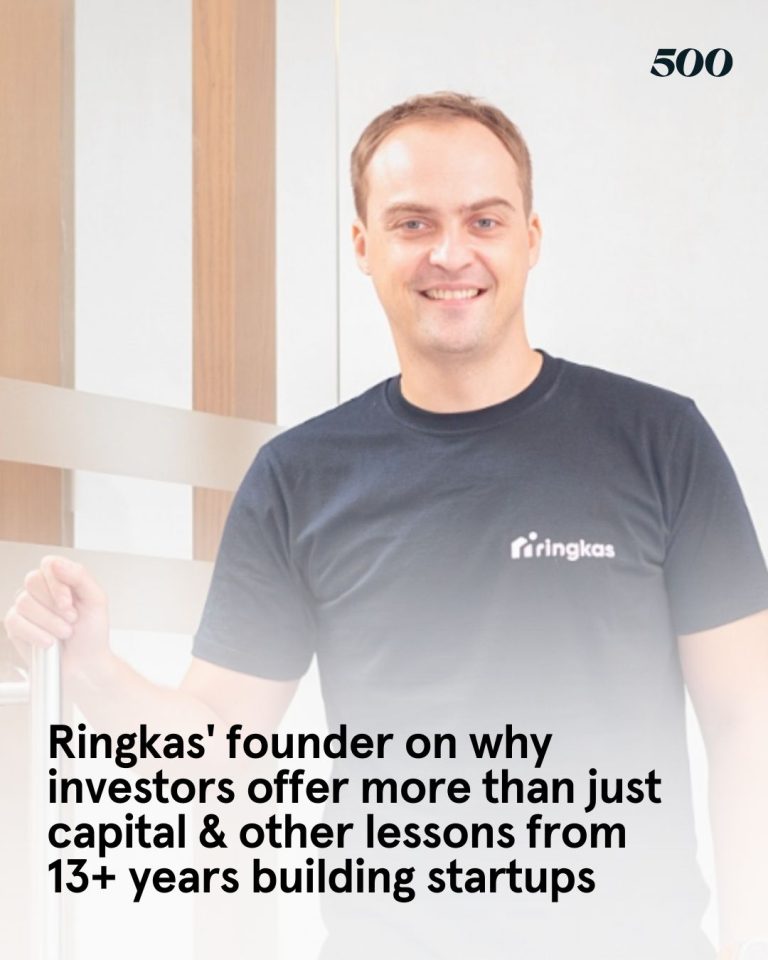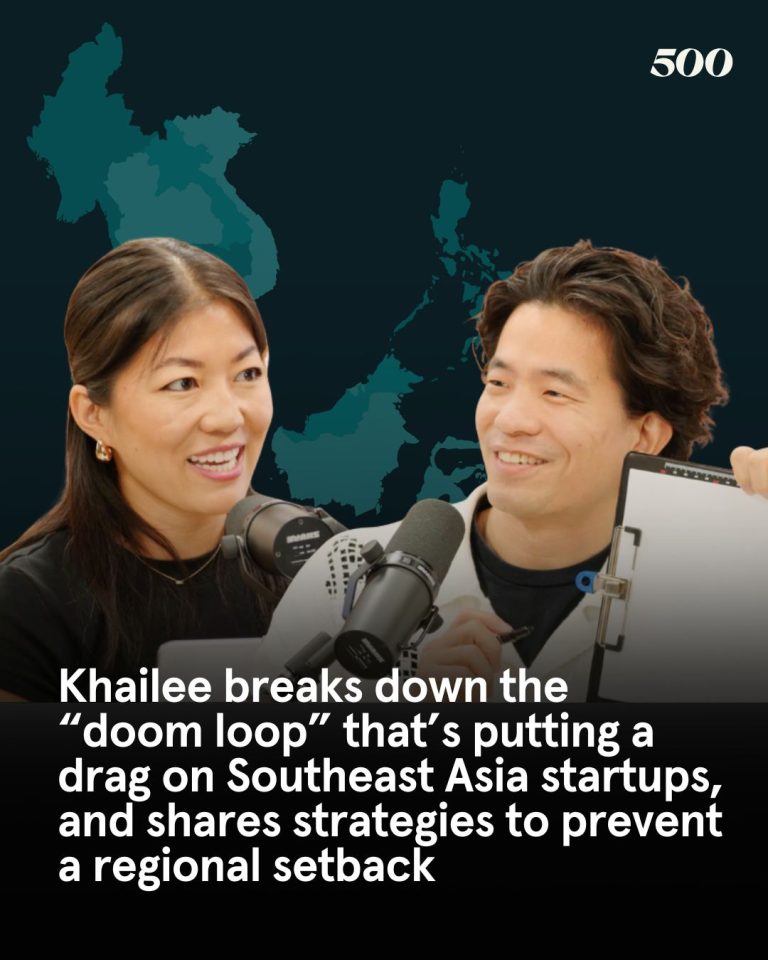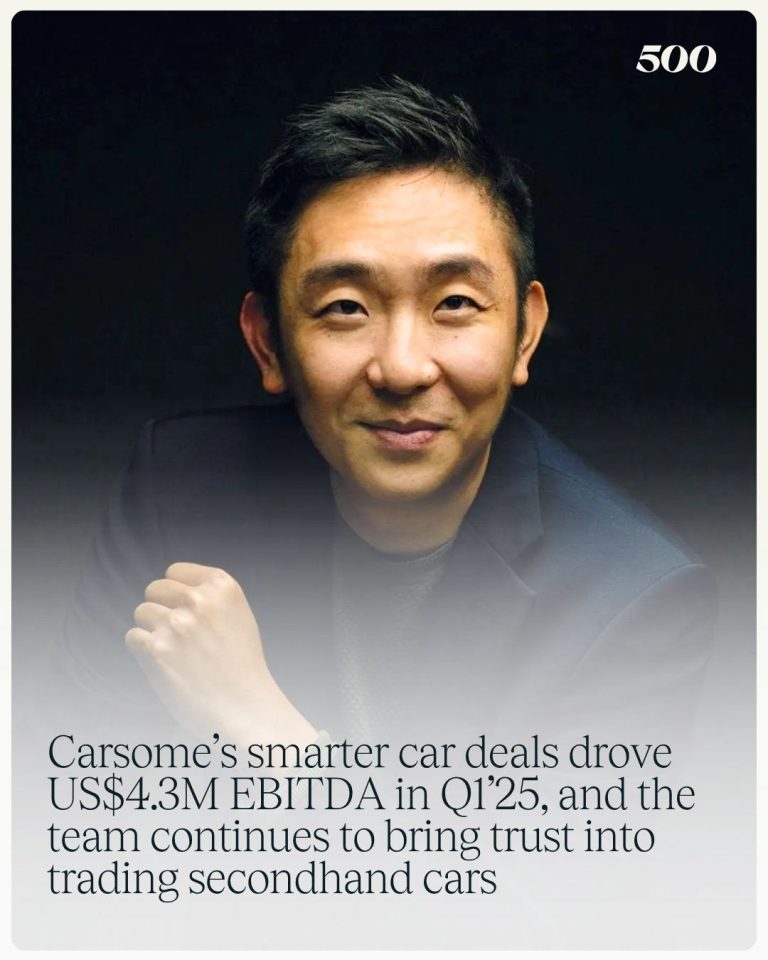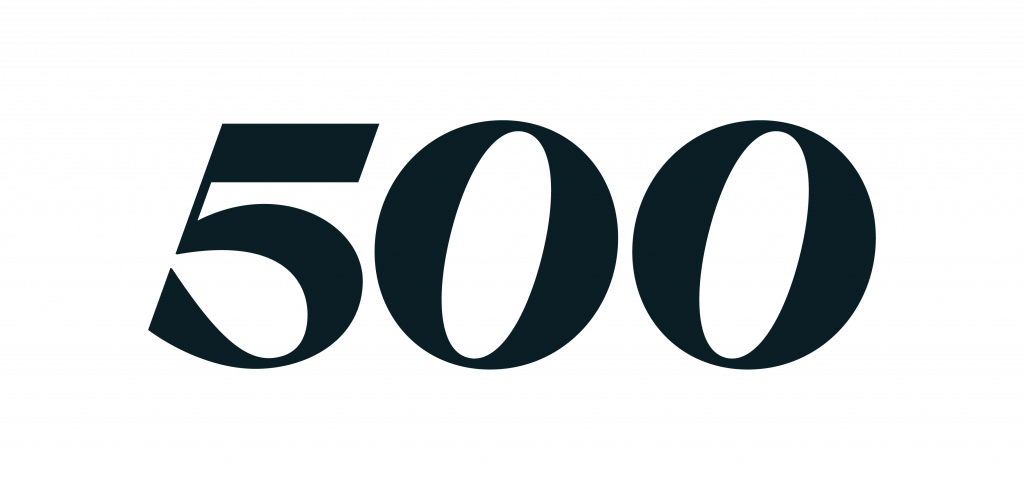The future of elderly care.
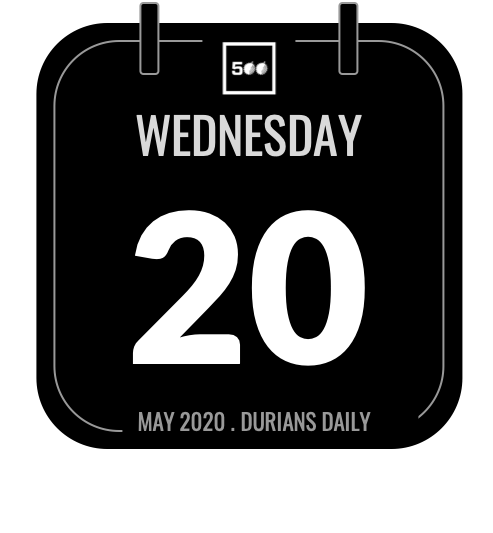
Paying homage
- Some of the most rapidly aging countries in the world are in Southeast Asia. According to statistics, the population of Singapore over the age of 65 is expected to reach 26.6 percent in 2035, whereas Malaysia is expected to be an aging population by 2030.
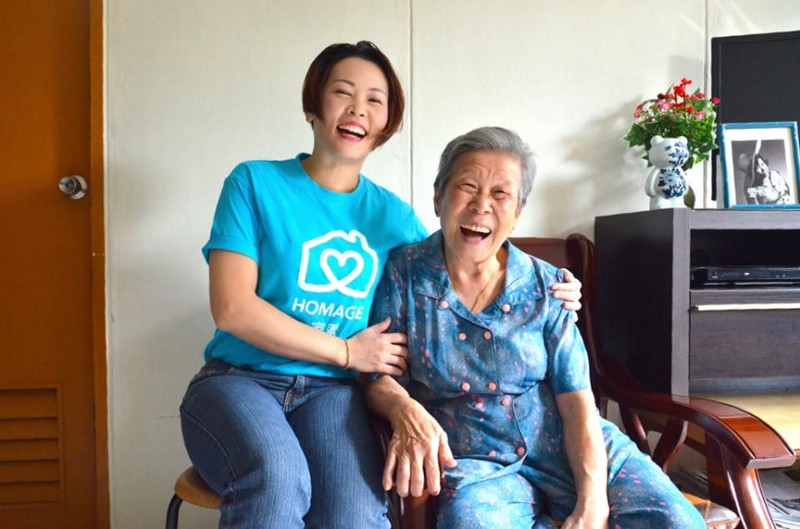
- This means caregiving is an urgent need in the region, and with limited access to qualified service providers, it can be a struggle for families to look after their elderly relatives.
- 500-backed Homage is redefining elderly care in the region through a curated approach by pairing caregivers and families, using a combination of in-person screening and its matching engine to make the process more efficient.
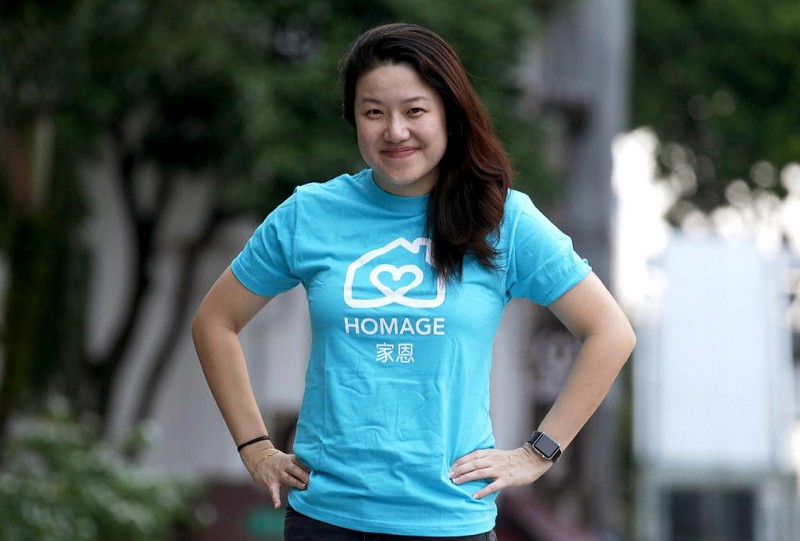
- Speaking to FocusMalaysia, CEO and co-founder Gillian Tee says Homage has been expanding rapidly in the two countries it currently operates in — Singapore and Malaysia. Homage also has the largest fully-screened pool of close to 2,000 qualified elderly care professionals here.
- All care professionals are carefully screened and assessed before they’re onboarded to the platform, Homage then carefully matches them with families according to specific needs and the profile of the care recipient. Bookings are made on the website or a mobile app.
- Homage plans to expand its services across Asia over the next two years. Read Gillan’s full interview with FocusMalaysia here.
Improving the halal supply chain
- The State of Global Islamic Economy finds that Muslim expenditure on F&B is projected to reach $2.0 trillion by 2024.
- 500-backed FOX-TECH has partnered with Singapore-based WhatsHalal to access this high-growing market and improve its supply chains for the Islamic community across Southeast Asia.
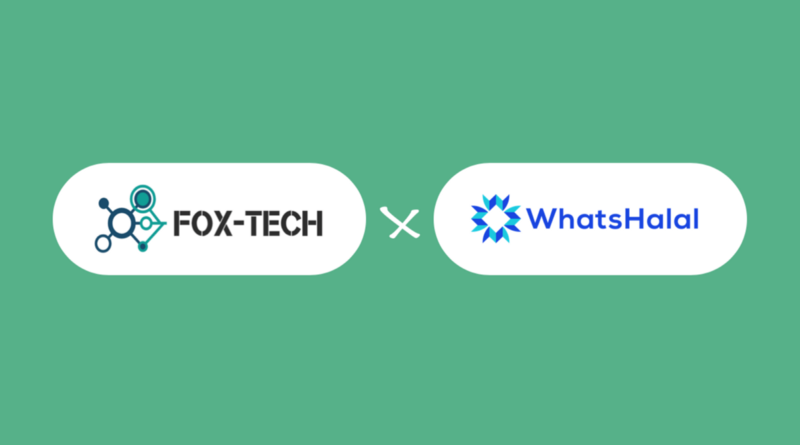
- FOX-TECH enables traditional businesses with perishable goods to improve safety compliance and reduce profit losses through their easy-to-use data analytics solution whereas WhatsHalal uses blockchain technology to cater to the Muslim community in 29 countries including Malaysia, Singapore, and Australia. One of the key features is a barcode scanner that determines whether a packaged food item is halal-certified.
- Through this partnership, WhatsHalal can leverage FOX-TECH’s proprietary IoT solutions to assure Halal providers of the quality and safety of their products at every level of the supply chain.
- For more information on FOX-TECH, visit their official website.
Collectively against Covid-19 misinformation
- In times of a global health crisis, getting accurate information about the disease becomes ever more important.
- Early March, a community of volunteers comprising health and tech professionals came together to create an initiative called KawalCOVID-19 in Indonesia to collate, verify, and disseminate accurate information on the pandemic.
- As the positive cases started increasing in the country, so did the proliferation of misinformation on messaging services and social media.
- Through its digital platforms and website, KawalCOVID-19 shares a wide range of information, from how to use masks to how to avoid infection among schools, to data on the latest confirmed cases.
- Besides, the website provides an exhaustive referral list of hospitals treating the fast-spreading respiratory disease, a fact sheet, FAQs about the coronavirus, and much more. On the ground level, the group is partnering with initiatives such as Masyarakat Anti-Fitnah Indonesia, an established anti-hoax organization, to counter Covid-19 misinformation.
Kumpulan Thread @KawalCOVID19 untuk mempermudah pencarian thread terkait informasi #COVID19
Info media sosial:
Website dan FB: https://t.co/akvBe3Ev5C
Twitter: @KawalCOVID19— KawalCOVID19 (@KawalCOVID19) March 5, 2020
- You can find KawalCOVID-19 on Facebook, Twitter, and Instagram. Alternatively, have a look at the website for more details.
- A kind reminder to everyone: Always, always verify before sharing.
Stay tuned to the next Daily Markup! Missed out on the last Durian Daily? Go here for a full recap.
You can also find us on LinkedIn, Facebook, Twitter, and Instagram.

500 Startups is a venture capital firm on a mission to discover and back the world’s most talented entrepreneurs, help them create successful companies at scale, and build thriving global ecosystems. In Southeast Asia, 500 Startups invests through the pioneering 500 Southeast Asia family of funds. The 500 Southeast Asia funds have backed over 240 companies across multiple sectors from internet to consumer to deep technology. It continues to connect founders with capital, expertise and powerful regional and global networks to help them succeed.
This post is intended solely for general informational or educational purposes only. 500 Startups Management Company, L.L.C. and its affiliates (collectively “500 Startups”) makes no representation as to the accuracy or information in this post and while reasonable steps have been taken to ensure that the information herein is accurate and up-to-date, no liability can be accepted for any error or omissions. All third party links in this post have not been independently verified by 500 Startups and the inclusion of such links should not be interpreted as an endorsement or confirmation of the content within. Under no circumstances should any content in this post be construed as investment, legal, tax or accounting advice by 500 Startups, or an offer to sell or solicitation of interest to purchase any securities advised by 500 Startups. Prospective investors considering an investment into any 500 Startups fund should not consider or construe this content as fund marketing material. The views expressed herein are as at the date of this post and are subject to change without notice. A 500 Startups fund may have a financial interest in one or more of the companies discussed.
